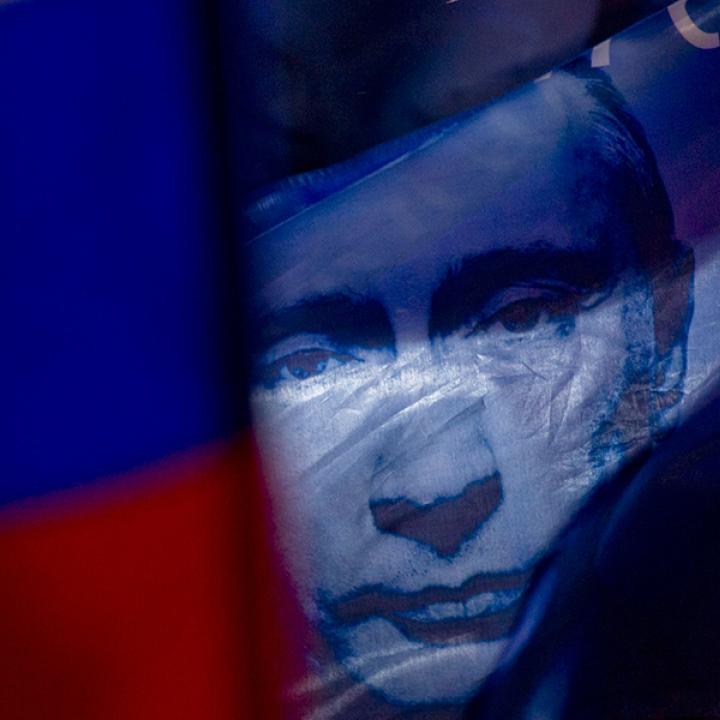

Although state officials and media have expressed somewhat nuanced views on the Beirut disaster and subsequent protests, most of their comments boil down to preventing deeper U.S. involvement and safeguarding Moscow’s interests in the current power structure.
A week after the massive explosion in Beirut, the Lebanese people are rightly demanding fundamental political change. In response, Russian officials and analysts have had much to say given the country’s importance to their regional interests. The Kremlin has long viewed Lebanon as both a geopolitically crucial landmark on the East Mediterranean and a country where the Christian minority can be cultivated like nowhere else in the Middle East. In recent years, its ties with Lebanon have deepened even further as an extension of its Syria policy, including on the military level.
Perhaps because of all the interests at stake, official Russian responses to the Beirut disaster and its aftermath have been fairly guarded so far. President Vladimir Putin sent condolences to President Michel Aoun, along with humanitarian aid that reportedly included medical equipment and specialists. He also deployed a special team to Beirut consisting of personnel from Russia’s emergency and healthcare ministries.
Meanwhile, Foreign Ministry spokesperson Maria Zakharova wrote on her Facebook page that “the heart sinks” at the sight of images coming out of Beirut, then lamented the rapidly growing number of countries where “life is crumbling” at the hands of people rather than natural disasters. Yet much like Aoun, Moscow opposes an international investigation into the explosion, as Russian ambassador Alexander Zasypkin told an Arabic press outlet.
Kremlin-controlled press have also expressed a substantial amount of anti-American and pro-Hezbollah sentiments following the disaster. The latter take is unsurprising given that Moscow has never labeled Hezbollah as a terrorist organization. To the contrary, it hosted the group’s leaders for an official visit in late 2011 and has been leaning closer to the Iran-Hezbollah-Syria axis ever since. The group fought alongside Russian forces in the campaign to keep the Assad regime in power, to their mutual benefit—Hezbollah fighters learned much from working with professional military personnel, while senior Russian officials publicly praised the group as a “legitimate force.”
More recently, as Lebanese protestors called on Prime Minister Hassan Diab and his Hezbollah-backed government to resign, Russian state-controlled media pointedly highlighted the dangers of challenging the group’s local authority. According to Evgeny Poddubnyy, the regional bureau chief of the All-Russia State Television and Radio Broadcasting Company (VGTRK), “The party of Hassan Nasrallah is the only party that has real combat potential here, and [demands for resignations] can inevitably lead to a large-scale conflict in Lebanon.” He also claimed that Lebanese activists who demand Hezbollah’s disarmament are receiving money from abroad—an indirect reference to the United States and its allies.
Poddubnyy elaborated on the latter point in a separate article: “[The protests are] passing into the hands of pro-Western and pro-Saudi political forces. Reducing the influence of the Shia ‘Hezbollah’ is the goal of local politicians; an open conflict of confessions is the goal of the United States and the European Union.” Similarly, another Russian analyst wrote in a state-controlled outlet that while everyone should be sending humanitarian aid to Lebanon, some countries are using it as an excuse to “pursue their national interests”—namely, the West and the Gulf states seek to overthrow the current government and remove Hezbollah from power.
To be sure, some state-run outlets have criticized Hezbollah and the Lebanese government. TASS quoted Middle East expert Grigory Lukyanov as saying that “politics in Lebanon discredited itself.” Hezbollah, he observed, is not interested in socioeconomic issues, only in fighting Israel. And in the current context of humanitarian aid and calls for fundamental reform, he argued that “the authorities are interested in money, but not in changes.”
Russian audiences are unlikely to understand the degree to which these political failures can be traced to Hezbollah, the Syrian regime, and other Iranian partners, who have repeatedly undermined Lebanese sovereignty and fomented regional instability over the years. More important, Lukyanov’s criticism does not deviate from the overall message emanating from Russia—that Moscow’s sights remain fixed on the larger goal of ensuring influence with whoever holds sway on the ground in Lebanon, at least in part because events there affect Russian interests in Syria. For example, some Russian observers have previously emphasized how Lebanese banks could serve as Syria’s connection to the outside world, facilitating reconstruction in a manner that keeps Assad in power. Current events threaten to complicate that scenario.
For now, the French government is taking the lead in Lebanon, spurring one Russian media outlet to declare that Paris and the EU are saving the country from civil war. France has pursued warmer ties with the Kremlin over the past year, and according to Russian press coverage, Paris now expects Moscow (along with Turkey) to help it in Beirut. Putin will likely support this effort (or at least pay lip service to it) so long as it preserves as much of Lebanon’s status quo as possible. This mindset is partly driven by his general aversion to changing any government he favors, especially via popular protests or international pressure. He may also be focused on other priorities at the moment, such as the recent anti-government protests in neighboring Belarus and Russia’s own far east.
But what matters most from Moscow’s perspective is that Washington remain largely absent from the scene. Tellingly, Zasypkin warned in an interview with Sputnik Arabic that U.S. influence in Lebanon is expanding and will lead to negative consequences for the country. His comment suggests that Moscow will continue pursuing influence there while driving the narrative of instability that supposedly results from American involvement.
Anna Borshchevskaya is a senior fellow at The Washington Institute.



